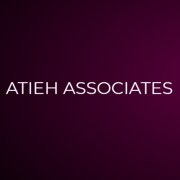Best Mining Law Lawyers in Tehran
Share your needs with us, get contacted by law firms.
Free. Takes 2 min.
List of the best lawyers in Tehran, Iran
About Mining Law in Tehran, Iran
Mining Law in Tehran, Iran, governs the process of exploration, extraction, and utilization of mineral resources within the country. The legal framework is primarily overseen by the Iranian government and aims to regulate ownership, environmental protection, foreign investment, and the rights and responsibilities of those involved in mining activities. Mining is a significant sector for Iran’s economy, with the country possessing vast reserves of minerals such as iron ore, copper, gold, and various industrial minerals. The law seeks to balance economic opportunity with sustainable and responsible mining practices.
Why You May Need a Lawyer
Engaging in mining activities in Tehran comes with a complex set of legal requirements. Individuals and companies may require legal assistance for several reasons, such as:
- Securing exploration or exploitation licenses and permits
- Negotiating mining contracts and joint ventures
- Complying with environmental and safety regulations
- Resolving land use and property disputes related to mining sites
- Guidance on taxation, royalties, and government fees
- Navigating foreign investment laws for international partners
- Dealing with disputes over mineral rights or contractual breaches
- Handling labor and employment issues in mining operations
- Ensuring compliance with export controls and customs regulations
A lawyer familiar with Iranian Mining Law can help prevent legal pitfalls, ensure compliance, and safeguard your investment and operations.
Local Laws Overview
Mining Law in Iran is largely defined by the 1983 Mining Act and its subsequent amendments, as well as implementing regulations and directives issued by the Ministry of Industry, Mine and Trade. Key aspects include:
- The state retains ownership of all mineral resources. Private entities, both domestic and foreign, may acquire licenses for exploration and extraction.
- Licenses are granted through a formal application process and are subject to specific terms, fees, and renewal requirements.
- Mining activities must comply with environmental protection standards, often requiring environmental impact assessments before the commencement of operations.
- Foreign investors may participate in mining activities within the frameworks set by investment promotion laws and relevant restrictions.
- Disputes arising from mining activities may be resolved administratively, through negotiation, arbitration, or through Iran’s court system.
- The Ministry of Industry, Mine and Trade is the main regulatory authority. Regional authorities in Tehran oversee compliance, site inspections, and dispute resolution at the local level.
- Failure to comply with mining regulations can result in fines, license revocations, and in severe cases, criminal liability.
Frequently Asked Questions
What types of mining licenses are available in Iran?
There are two main types of licenses: exploration licenses, which permit the search for mineral resources, and exploitation licenses, which allow for their extraction and processing.
Who grants mining licenses in Tehran?
Mining licenses are granted by the Ministry of Industry, Mine and Trade, along with oversight from regional mining departments in Tehran.
Can foreign companies apply for mining licenses?
Foreign companies may apply for licenses under specific conditions, usually requiring collaboration with local entities and compliance with investment laws.
What are the typical requirements for obtaining a mining license?
Applicants must submit technical and financial plans, prove their qualifications, comply with environmental standards, and pay any relevant fees.
Is environmental clearance mandatory for mining projects?
Yes, obtaining an environmental permit and conducting impact assessments are required before beginning any significant mining operations.
What taxes and royalties apply to mining activities?
Operators are subject to royalties, license fees, and taxes as determined by law and relevant regulations. Details can vary depending on the mineral and the scope of the project.
What happens if a company violates mining laws or regulations?
Penalties include fines, suspension or revocation of licenses, and even criminal charges in serious cases such as illegal extraction or environmental harm.
Are there health and safety regulations for mining workers?
Yes, mining operations must comply with occupational health and safety laws to protect workers. This includes regular inspections and enforcement of safety standards.
Can a mining license be transferred or sold?
In certain cases, transfer of licenses is allowed with permission from the responsible authorities and upon meeting legal criteria.
How are mining disputes usually resolved?
Disputes may be resolved through administrative channels, mediation, arbitration, or litigation in civil courts, depending on the nature of the disagreement.
Additional Resources
If you require more in-depth information or assistance, consider reaching out to the following institutions:
- Ministry of Industry, Mine and Trade (MOIMT) - The central authority for mining regulations and licensing
- Tehran Chamber of Commerce, Industries, Mines and Agriculture - Provides guidance and support for mining businesses
- Iranian Mining Engineering Organization - Offers professional standards, registration, and technical advice
- Environmental Protection Organization of Iran - Oversees compliance with environmental laws in mining operations
- Legal advisory offices and law firms specializing in mining or natural resources law
Next Steps
If you need legal assistance in Mining Law in Tehran, start by gathering all relevant documents regarding your mining activities, including existing licenses, contracts, project reports, and any communication with authorities. Consult with a law firm or legal advisor who has experience in Iranian Mining Law to assess your specific needs and guide you through the next steps. A qualified lawyer can help you:
- Evaluate your eligibility and prepare the necessary documents for license applications
- Advise on compliance with local regulations and environmental requirements
- Draft and review contracts or joint venture agreements
- Represent you in negotiations or legal disputes with authorities, partners, or third parties
- Provide updates on changes to mining laws that could affect your rights and obligations
Taking proactive legal advice early can help you navigate the complexities of Mining Law in Tehran, avoid costly mistakes, and ensure your operations are both successful and compliant with local regulations.
Lawzana helps you find the best lawyers and law firms in Tehran through a curated and pre-screened list of qualified legal professionals. Our platform offers rankings and detailed profiles of attorneys and law firms, allowing you to compare based on practice areas, including Mining Law, experience, and client feedback.
Each profile includes a description of the firm's areas of practice, client reviews, team members and partners, year of establishment, spoken languages, office locations, contact information, social media presence, and any published articles or resources. Most firms on our platform speak English and are experienced in both local and international legal matters.
Get a quote from top-rated law firms in Tehran, Iran — quickly, securely, and without unnecessary hassle.
Disclaimer:
The information provided on this page is for general informational purposes only and does not constitute legal advice. While we strive to ensure the accuracy and relevance of the content, legal information may change over time, and interpretations of the law can vary. You should always consult with a qualified legal professional for advice specific to your situation.
We disclaim all liability for actions taken or not taken based on the content of this page. If you believe any information is incorrect or outdated, please contact us, and we will review and update it where appropriate.












